Which is the best sport in the world right now and why is it the best ?
Other Sports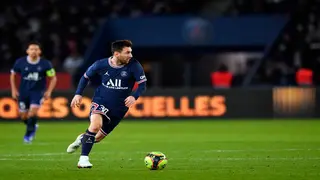
Adaptive sports, a cornerstone of inclusivity and empowerment, are tailored or modified to meet the needs of individuals with varying disabilities. They open up a world of opportunities for competition, community, resilience, and the celebration of human potential in all its diverse forms.

The burgeoning field of adaptive games is levelling the playing field, ensuring no one is left on the sidelines due to physical or cognitive disabilities. Through inventive modifications and adaptive equipment, these games bring the thrill of competition, camaraderie, and achievement to individuals who might otherwise be excluded from traditional ones. This comprehensive article delves into what adaptive sports are, their importance, types, benefits, and the organisations that support them.
Adaptive sports, also known as disability sports or parasports, can be defined as games played by individuals with disabilities. These games are 'adapted', meaning they have been modified or developed to allow individuals with different abilities to participate fully, competitively, or recreationally.
Which is the best sport in the world right now and why is it the best ?
Other Sports
They may include modifications to the equipment used, game rules, or the sport's design to ensure it is accessible and safe for individuals with varying types of disabilities. The goal is to promote inclusion, ensure equal opportunity and improve physical fitness and coordination while providing an avenue for social interaction and community involvement.

Adapted sports are essentially the same as adaptive sports. They are games that have been modified or developed with the purpose of accommodating individuals with disabilities, providing them with an opportunity to participate on an equal playing field.
Adaptive games play a vital role in empowering individuals with disabilities. It allows them to participate in recreational or competitive sports actively they might otherwise be excluded from due to physical or mental conditions.
They provide a platform for these individuals to engage in regular physical activity, essential for maintaining good health and promoting well-being. This, in turn, can boost self-esteem, improve mental health, and enhance overall quality of life.
Which are the most popular sports for girls? An informative list
Other Sports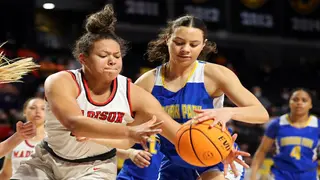
Moreover, adaptive games promote inclusion and diversity in the sports community by breaking down barriers and challenging societal perceptions of disability.

A wide range of adaptive sports is available, with variations for almost every type of traditional sport. Each game can be adapted to cater to specific disabilities, whether physical, intellectual, or sensory impairments. Some popular examples include:
1. Wheelchair basketball: A variant of basketball played from specially designed wheelchairs, following most standard rules with modifications for wheelchair movement.
2. Sitting volleyball: In this version of volleyball, players are seated on the court, the net is lower, and the court is smaller than in standard volleyball.
3. Adaptive skiing/snowboarding: Incorporates specialised equipment and training to accommodate different abilities, including sit-skis, guided skiing, or tethered skiing.
4. Wheelchair tennis: Tennis played from specially designed wheelchairs, with the rule modification that the ball can bounce twice, with the second bounce permitted outside the court boundary.
What is the easiest sport to play right now and why is it the easiest?
Other Sports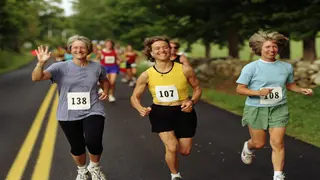
5. Blind soccer: A version of soccer where the ball is equipped with a noise-making device for player location; outfield players wear eyeshades to equalise vision disparity.
6. Boccia: A precision ball sport where players aim to throw balls as close as possible to a white target ball, the 'jack'.
7. Goalball: Designed for athletes with visual impairments, players in teams of three aim to throw a ball embedded with bells into the opposing team's goal.
8. Powerchair football: A competitive team sport for power wheelchair users, where two teams of four players aim to score goals by spin-kicking a 13-inch soccer ball.
9. Wheelchair rugby: A mixed-team sport where the objective is to carry the ball across the opposing team's goal line using specially designed, durable wheelchairs.
10. Wheelchair fencing: A version of fencing where athletes compete while seated in wheelchairs anchored to the ground, with three weapon categories: foil, epee, and sabre.
Ranked! Top 10 most dangerous sports to play at the moment
Other Sports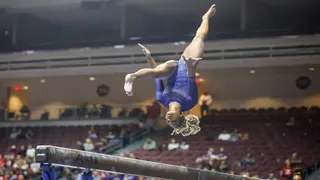
Adaptive classes are specially designed instructional courses for individuals with disabilities. They may be related to adaptive sports, such as training sessions or workshops to teach specific sports skills, rules, and techniques in a manner tailored to suit the participant's abilities and needs. These classes also extend beyond games, encompassing any learning or activity that can be adapted for people with disabilities, like dance, yoga, or martial arts.

To enable participation in adaptive sports, specialised equipment is often used. This might include modified wheelchairs, prosthetic devices, guide ropes, or balls with bells. For example, in wheelchair rugby, athletes use wheelchairs designed for contact and durability, while in blind soccer, the ball makes noise to guide the players.
Beyond physical fitness, adaptive games provide numerous benefits. These benefits extend far beyond the realm of physical health:
How many sports are there in the world? A list of all sports and games
Other Sports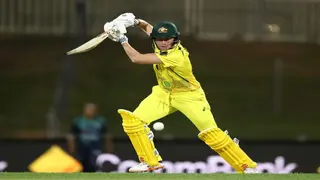

There are numerous organisations worldwide dedicated to promoting and supporting adaptive games. These include:
Adaptive sports are not just about competition but about community, empowerment, and inclusion. They celebrate the spirit of athleticism and resilience and offer an opportunity for everyone, regardless of ability, to enjoy the benefits of sport and physical activity.
READ ALSO: How many sports are there in the Commonwealth Games? A list of Commonwealth games
SportsBrief published an article about how many sports there are in the Commonwealth Games. This is a question most people tend to ask due to the subdivision of different sports the tournament offers.
The Commonwealth Games is a quadrennial international multi-sport event between many athletes from the Commonwealth of Nations. Click the above link to read more!